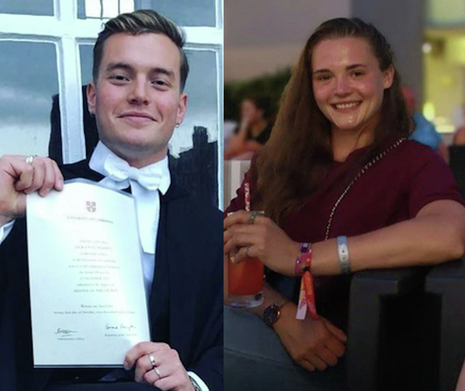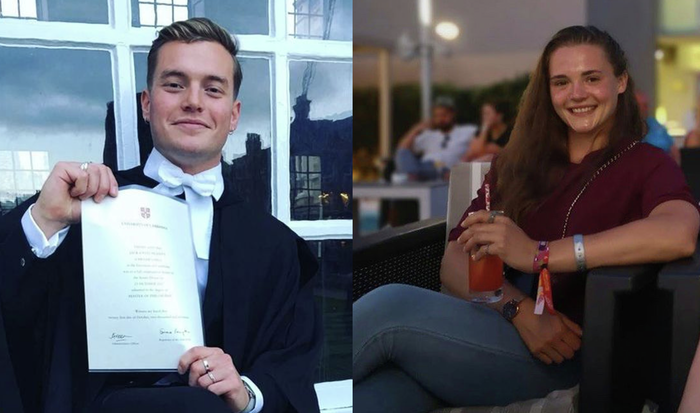‘Dismay’ at Cambridge scrapping prisoner programme
Criminologists and Learning Together alumni have criticised Cambridge for ending the prisoner education scheme

More than 70 signatories, including criminologists across UK universities, as well as alumni of the Learning Together (LT) initiative, have published an open letter expressing “dismay” at Cambridge’s decision to scrap the prisoner education programme last week (10/01).
Jack Merritt, 25, and Saskia Jones, 23, were murdered in 2019 at a Learning Together event at Fishmongers’ Hall in London by convicted terrorist Usman Khan.
The inquest into their deaths criticised Learning Together for the event, as Khan was allowed to attend the event without a police escort despite his high-risk classification and the fact that he was on probation.
The letter stresses the importance of the initiative, which “aimed to provide high-quality educational opportunities”, and could “fill a book with testimonies of lives affected for the better by this initiative.”
Protesting the decision to cease partnership with the initiative, it criticises the university’s “retrograde step” of “providing a conventional education largely to the most privileged in society”.
Among the signatories are Marc Conway and John Crilly, both ex-offenders and alumni of the Learning Together scheme. They were also attendees at the Fishmonger Hall’s event in 2019 and helped fight the attacker on the day.
Speaking to Varsity, Conway said: “If it were not for Learning Together, I would not be where I am today. I work for a very successful prison reform charity, I’ve gotten a degree, I’ve changed my life, and this is all because of the help Learning Together was able to provide me. And I’m not unique in that, there’s lots of people [who can say the same].”
Crilly voiced similar sentiments, saying he felt “sick” when he heard about the University’s decision.
In particular, he expressed disappointment at Cambridge as other universities will be continuing the scheme. Learning Together tweeted that despite Cambridge’s decision, “partnership will continue at Universities with adequate governance, safeguarding and risk management processes under the new Ministry of Justice framework to which we have contributed.”
The open letter emphasised that Cambridge itself had similarly recognised that the initiative could “feasibly be delivered in a way that minimises and appropriately manages risks”.
Speaking about the risk management framework that had been employed in organising the Fishmonger Hall’s event, Conway told Varsity: “I know the Learning Together founders followed the Cambridge University and the Prison and Probation Service (HMPPS) risk management strategy. Intel was not shared with them on the danger that Usman Khan presented.”
This was echoed in the published Learning Together CIC response to the Coroner, which stated that the event “was organised in accordance with and adhered to all of the established risk management, safeguarding and governance frameworks of the University that were communicated to and implemented within the Institute of Criminology.”
Conway accused the University of using the programme’s founders, Dr. Ruth Armstrong and Dr. Amy Ludlow, as “scapegoats” for their own “failing risk management”, and ‘hanging them out to dry’.
Some of the victims’ families released statements supporting Cambridge’s closure of the scheme. Jack Merritt’s father, Dave Merritt, said those leading the course were “naive about the risks” posed.
Ben Jarman, a PhD researcher at the Cambridge Institute of Criminology and one of the signatories of the open letter, argued for the positive sides of the programme, as “it’s not clear that [shutting the programme] does any good, and it does so a lot of harm.”
Fourth year Cambridge student, Olivia Millard, who had previously attended a Learning Together course at HMP Whitemoor in 2019 and was set to become a mentor in the following course before the attack, described the programme as “incredibly formative”. However, she agrees with Dave Merritt that the “programme should be halted” until “safeguarding measures leave no scope for error.”
 Comment / Plastic pubs: the problem with Cambridge alehouses 5 January 2026
Comment / Plastic pubs: the problem with Cambridge alehouses 5 January 2026 News / New movement ‘Cambridge is Chopped’ launched to fight against hate crime7 January 2026
News / New movement ‘Cambridge is Chopped’ launched to fight against hate crime7 January 2026 News / Uni-linked firms rank among Cambridgeshire’s largest7 January 2026
News / Uni-linked firms rank among Cambridgeshire’s largest7 January 2026 News / Cambridge businesses concerned infrastructure delays will hurt growth5 January 2026
News / Cambridge businesses concerned infrastructure delays will hurt growth5 January 2026 News / SU stops offering student discounts8 January 2026
News / SU stops offering student discounts8 January 2026









